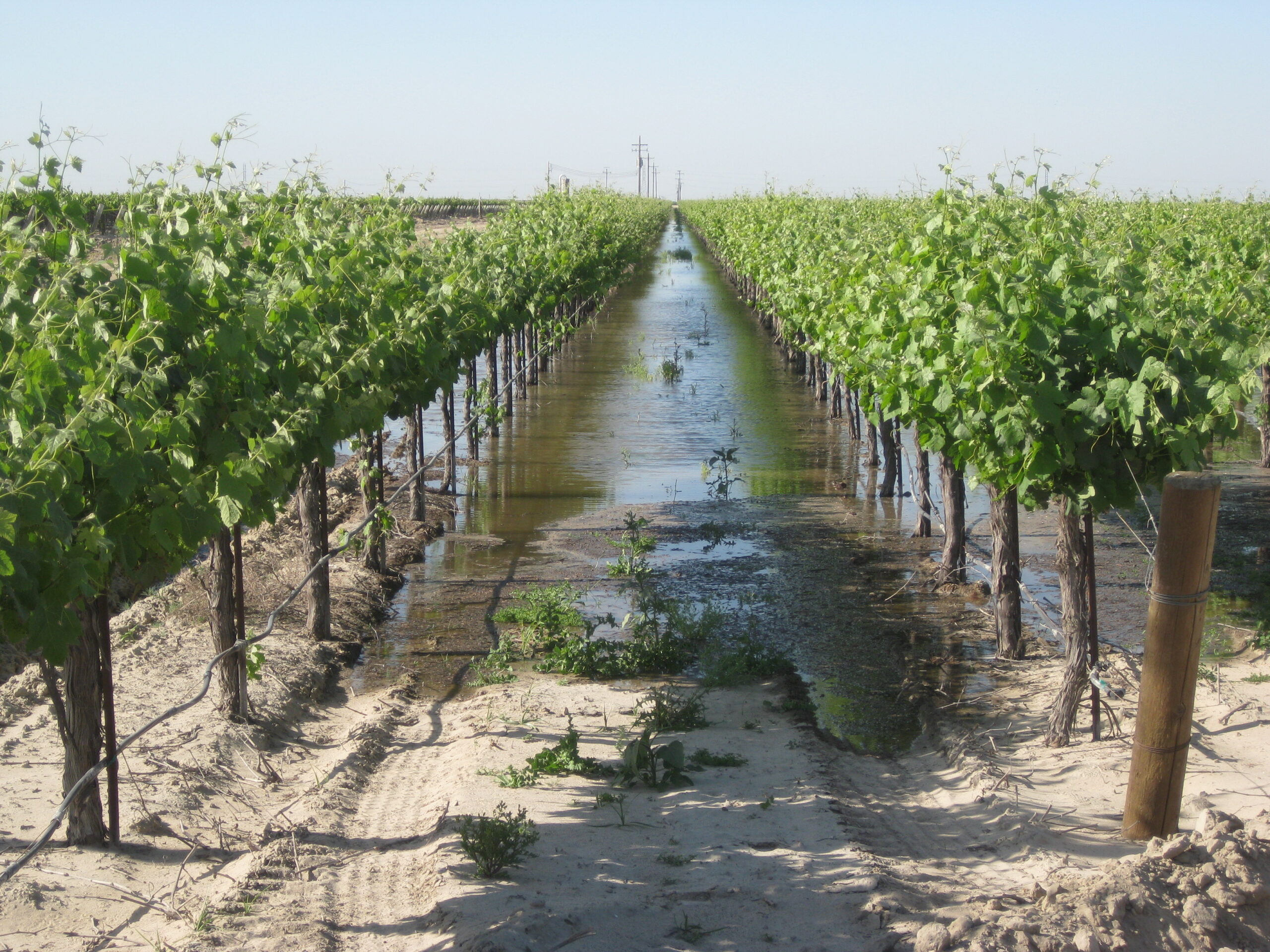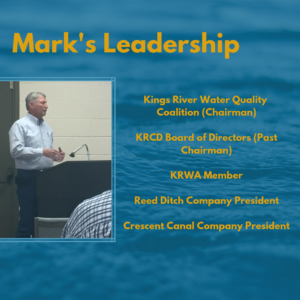
We recently had a chance to sit down with Mark McKean, a Fresno-area grower and leader in the agriculture industry to talk about his experience with water management and farming. To learn a bit more about Mark, check out our recent blog detailing his groundwater recharge work and background.
 Based on your expertise with water management on the farm and at the basin level, what would you say is the biggest challenge in recharging groundwater?
Based on your expertise with water management on the farm and at the basin level, what would you say is the biggest challenge in recharging groundwater?
Finding the water. Any and everywhere. In my area [Fresno], it’s more of a challenge to get water for recharge. If we were able to recharge all the water that comes off our watershed, that’d be great, but it’s very difficult to capture 100%. If we captured 80%, we’re doing pretty well, but we’re not there yet.
Do you think you’ll get there?
I think the 80% is the low-hanging fruit. Getting from 80% to 100% is going to be costly and more difficult, but that’s where we have to get.
What do you wish more urban residents knew about farming and water use?
As a generational farmer, I have a big vested interest in sustainable farming. And yet they don’t think what we’re doing is sustainable, and it truly is. When issues come before us, I’ve never yet seen ag run from the issue. We’ve always tried to address them: water quality, air quality, and now sustainable quantities of water. Everywhere, farmers are trying to do what they can, and there’s a lot to do right now. There are a lot of issues.
If you had one piece of advice for young farmers, what would it be?
That’s a difficult question. I have two sons that are joining our farming operation now. That’s one of the reasons why I’ve worked so hard on this, so I can pass on something that’s sustainable to the next generation, so they can carry it forward. The advice I’d give is to think long-term. Think about how you’re going to get through the next 20 years, not just the next year. And not just financially but with resources, too – make sure you can take care of the resources you’ve been given.
Where do you see farming in the Valley in the next 25 years?
It’s going to look a lot different. I don’t think we’re going to get through this process without idling some acres in certain areas, and there are some estimates that’ve come out. The other thing you have to think about is that it’s not going to be proportionate across all acreage. Those with a better water right may not have to worry about this as much as those with a junior water right, for example. So, we’re going to have to think about how our operations fit into that number.
Anything else you’d like to add?
You know, I appreciate the partnerships that Sustainable Conservation’s done with the districts and the growers, it’s a big help. There are a lot of people who want to attack ag, instead of coming down and trying to understand the issues and work with us to try to make them better – that’s the difference.
